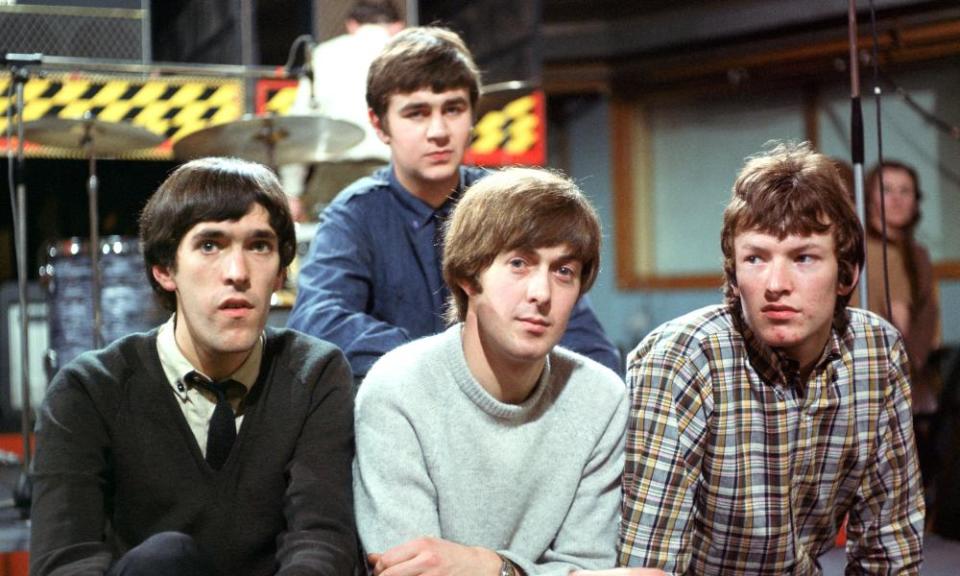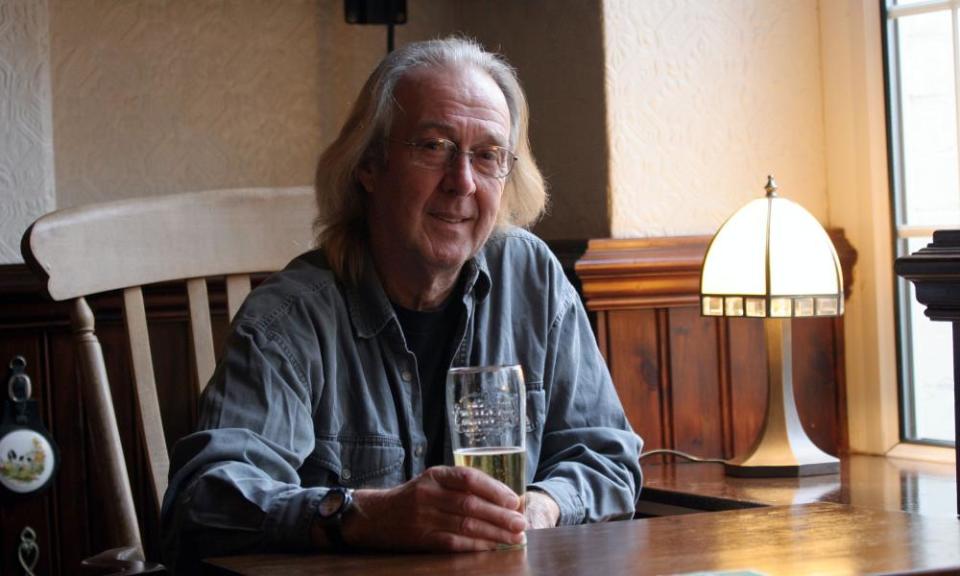Spencer Davis obituary

Between 1965 and 1967, the Spencer Davis Group were one of the hottest names in the crowded field of British pop. Their chart-topping singles Keep on Running and Somebody Help Me were fiery eruptions of soul and R&B, and the Top 10 follow-ups Gimme Some Lovin’ (co-written by Davis) and I’m a Man cranked the intensity even higher. With the last two they also cracked the US Top 10, and in 1971 Chicago’s version of I’m a Man reached the US Top 50 and No 8 in the UK.
Davis, who has died aged 81, played the guitar and was the ringmaster of the group, though he often felt overshadowed by the precocious presence in his band of the teenage prodigy Steve Winwood, who tended to receive most of the press coverage and fan attention. Davis later said: “I think Steve never sounded as good with Traffic, Blind Faith or [Ginger Baker’s] Air Force as he did with us.”

Davis had a gift for picking fine musicians, and, after Winwood and his bass-playing brother, Muff, quit, he rebuilt the group and recorded Time Seller (1967). Many regard this as one of their finest singles, though it barely scraped the US Top 100 and stalled at 30 in Britain. They released the underrated, psychedelically influenced album The Spencer Davis Group With Their New Face On in 1968, but Davis dissolved the group the following year.
He was born Spencer Davies (later dropping the e to aid pronunciation) in Swansea, and by the age of six was beginning to play the accordion and harmonica, encouraged by the example of his mandolin-playing uncle, Herman.
After attending Dynevor grammar school, at 16 he went to London to work in civil service clerical jobs with the Post Office and the Customs and Excise department. He returned to school briefly in Swansea and took A-levels in languages, then in 1960 went to Birmingham University to study German.
He also polished his technique on a 12-string guitar, inspired by Lonnie Donegan’s skiffle music and by American bluesmen including Lightnin’ Hopkins, Big Bill Broonzy and Leadbelly, with some Woody Guthrie influence for good measure.
In 1963 he left university and played with the future Rolling Stones bassist Bill Wyman in the Saints and with the singer Christine Perfect, the future Christine McVie of Fleetwood Mac, who was then studying sculpture at art college.

He formed what would become the Spencer Davis Group after seeing the Winwood brothers performing at the Golden Eagle pub in Birmingham with their own Muff Woody jazz band. Completed by the drummer Pete York, the band originally called themselves the Rhythm and Blues Quartette, then became the Spencer Davis Group after signing to Chris Blackwell’s Island Records in 1964.
Their first single, Dimples, released later that year, did not chart, but their luck changed spectacularly with their fourth release, Keep On Running – like Somebody Help Me, it was written by the Jamaican songwriter and fellow Island artist Jackie Edwards.
When it knocked We Can Work It Out/Day Tripper from the No 1 spot in January 1966, Davis received a congratulatory telegram from the Beatles. Davis later had a cameo as a bus passenger in the Beatles’ film Magical Mystery Tour. In 1966, the Spencer Davis Group starred in the musical comedy film The Ghost Goes Gear. In 1968, they supplied a batch of songs for Clive Donner’s swinging 60s sex comedy Here We Go Round the Mulberry Bush, alongside other material from Steve Winwood’s new band, Traffic.
The final 1960s version of the Spencer Davis Group featured Dee Murray on bass and Nigel Olsson on drums, who would both join Elton John’s band, and their swansong was the album Funky, recorded in 1969. Davis said: “In peoples’ minds there was only one Spencer Davis Group, and that consisted of Steve, Muff, Peter and myself. They just didn’t allow for the possibility of another Spencer Davis Group.”
Davis moved to California in 1970 and recorded an acoustic album with Peter Jameson, It’s Been So Long. In 1972 he released Mousetrap, produced by Sneaky Pete Kleinow, formerly the pedal steel guitarist with the Flying Burrito Brothers, but the results were unfocused (“they try so many things that the album sounds like a compilation,” commented the AllMusic website).

The eclectic Davis also involved himself in the business side of music. In 1967 he had formed Spencer Davis Management and in the 70s he took a job in artist development at Island Records, even though he believed the company had failed to pay him royalties due. “I’d sold millions of records and hadn’t seen a penny from them,” he said in 2005. There was partial recompense when he received a cheque for £5,000, earned from the Allman Brothers’ recording of his song Don’t Want You No More.
Yet the urge to reform the Spencer Davis Group still remained. The combo was reborn in 1973-74 and made two albums, Gluggo, produced by Deep Purple’s bassist Roger Glover, and then Living in a Back Street, neither of them commercially successful.
In 1984 Davis released the album Crossfire, which featured appearances by Dusty Springfield and Booker T Jones. He made numerous guest appearances with such headliners as the Grateful Dead and Hall & Oates, then formed the Classic Rock All Stars in 1993. In 1996 he upgraded this to the World Classic Rockers, which included Randy Meisner from the Eagles, Carmine Appice from Vanilla Fudge and the former Paul McCartney sideman Denny Laine.
In 2001, he began touring with a rebuilt Spencer Davis Group. In 2006 he released the album So Far, on which he looked back at his Welsh roots with songs such as The Swansea Shuffle and Uncle Herman’s Mandolin. In 2017 the Spencer Davis Group played its last dates, utilising two different lineups (both featuring Davis) for dates in Europe and the US.
Davis is survived by his partner, June Dante, three children, Lisa, Sarah and Gareth, and five grandchildren.
• Spencer Davis (Spencer David Nelson Davies), musician, songwriter and bandleader, born 17 July 1939; died 19 October 2020

 Yahoo News
Yahoo News 